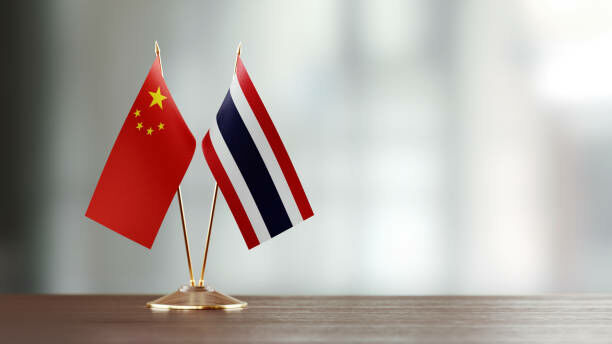Thailand and China to implement mutual visa-free travel from March

Beginning in March, Thailand and China will roll out a mutual visa-free agreement. This arrangement means that citizens from both countries will not need to apply for visas when travelling to the other country. The scheme was announced by Prime Minister Srettha Thavisin after a Cabinet meeting, and it will take effect from the first day of March.
The initiative is an enhancement to the earlier visa-free programme introduced for Chinese tourists visiting Thailand. The previous programme was initially set to last till the end of February, as revealed by PM Srettha, who also doubles as Thailand’s Finance Minister.
According to the 61 year old Thai PM, the concept of a permanent and reciprocal visa-free initiative had been under discussion before the initial visa-free programme for Chinese tourists was launched. The ongoing talks were the reason Thailand was not included in the visa-free initiative China introduced for six other countries a month ago.
The Tourism Authority of Thailand (TAT) last year reported that Chinese tourists were the second-highest number of visitors to Thailand. Approximately 3.51 million Chinese citizens visited Thailand last year, with Malaysians taking the lead with about 4.4 million visitors. However, Chinese tourists were the largest group of visitors to Thailand in the pre-pandemic year of 2019, with figures reaching 10 million.
Foreign Minister Parnpree Bahiddha-Nukara disclosed his plan to visit China around mid-January to sign a Memorandum of Agreement (MoA) regarding the permanent visa-free cooperation. Parnpree also mentioned he would visit China early the next month for the signing of the Thai-Chinese visa-free deal. Parnpree was assigned by PM Srettha to negotiate with China on easing visa requirements last year.
China Central Television (CCTV) reported a 28.5% increase in foreign visitors to China between November and December after the country introduced a visa-free programme that included France, Germany, Italy, the Netherlands, Spain, and Malaysia. These tourists, who visited China either for business or leisure, represented 77.3% of all foreign visitors to the country.
Before the Thai-Chinese bilateral agreement, Parnpree, in early December, revealed Thailand’s request to China to grant visa exemptions for Thai tourists. This disclosure was made after a meeting with his Chinese counterpart, Wang Yi, during the 8th Mekong-Lancang Cooperation Foreign Ministers’ Meeting in Beijing. This discussion marked the beginning of bilateral negotiations on the Thai-Chinese permanent visa-free cooperation.
Thailand had earlier introduced a tourist visa exemption scheme for Chinese and Kazakh passport holders, which allowed them to stay in the country for up to 30 days. This scheme, which was approved by the Cabinet on September 13, was intended to boost arrivals from China and Kazakhstan during the September high season.
This year, the Thai government aims to generate 3.5 trillion baht (US$102 billion) in tourism revenue, with plans to promote the country as a year-round tourism destination.
According to government spokesman Chai Wacharonke, one trillion baht of the total revenue is expected to come from domestic tourists, with the remaining 2.5 trillion baht (US$73 billion) anticipated from arrivals. The Thai Chamber of Commerce and the Tourism Authority of Thailand (TAT) are also set to start promoting less-visited provinces with untapped potential for investment and tourism from this month.
Latest Thailand News
Follow The Thaiger on Google News:


























